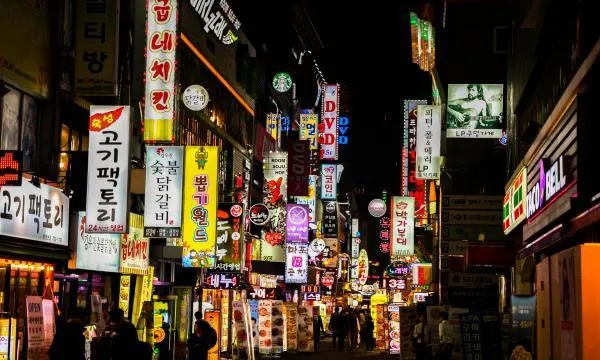
Weekly News Wrap: Japan's izakaya bars sees surge in bankruptcies; Hong Kong shop raided over ‘content labelling'
And Starbucks aims to eliminate disposable cups in South Korea by 2025.
From Reuters:
The number of Japan’s izakaya dining bars that went bankrupt hit a record high in the year that ended in March, a sign some service-sector firms are being left behind even as the economy emerges from the shock of the coronavirus pandemic.
A rebound in global growth and domestic consumption has helped the world’s third-largest economy recover from the doldrums, with business confidence improving to pre-pandemic levels in the first quarter.
But industries that had been hardest-hit, such as restaurants, are likely to remain under pressure as Japan plans to place Tokyo under a new, month-long “quasi-emergency” state to combat surging COVID-19 cases.
A total of 175 “izakaya” bars - a mainstay of Japanese working culture and late-night drinking - went under in fiscal 2020, up 17% from a year ago and the highest level since compable data became available two decades ago, think tank Tokyo Shoko Research said on Friday.
“People stayed away from the bars to avoid crowds. Small restaurants are also suffering from the cost of investing in equipment to prevent the spread of the virus such as partitions,” Tokyo Shoko Research said.
Read more here.
From Reuters:
Hong Kong authorities said that they had seized nearly 9,000 Thai cleaning products suspected to have wrong labelling from a shop founded by a pro-democracy activist facing charges under the city’s contentious national security law.
Customs officers raided 25 shops belonging to the chain, AbouThai, and arrested a 33-year-old male director of the group, the government said in a statement. “The product information marked on the packages of the products involved failed to bear Chinese and English bilingual warnings or cautions,” it said.
The company’s founder, Mike Lam, is among 47 democrats charged under the city’s national security law on a charge of conspiracy to commit subversion and is currently on bail. Crowds queued outside branches of the shop across the city to show support for Lam, with some saying they believed the raid was politically motivated.
Read more here.
From Bloomberg:
Starbucks has expressed plans to eliminate disposable cups from its cafes across South Korea by 2025, the first such measure in a major market by the coffee giant.
The Seattle-based chain will launch a “cup circularity” program in South Korea starting July, as it begins tackling its global refuse, which accounted for about 9% of its 16 million-ton carbon footprint in 2018.
Under the program, customers will be served beverages in reusable cups that require a “small deposit,” which is refunded on return to contactless kiosks, the company said in a statement.
South Korea, which has pledged to zero out planet-warming gases by 2050, revised a set of laws in February further limiting the use of plastic and other disposable items from retailers, food-delivery services and hotels. The revision came after the Asian nation imposed a ban on the use of plastic cups for in-store customers at all cafes in 2018.
Read more here.



















 Advertise
Advertise






